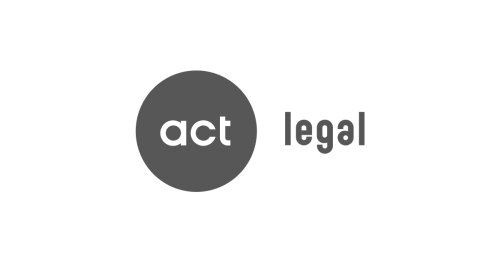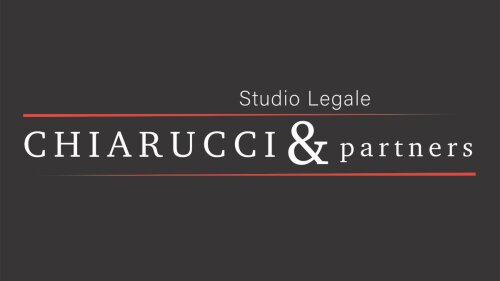Best Private Equity Lawyers in Italy
Share your needs with us, get contacted by law firms.
Free. Takes 2 min.
Or refine your search by selecting a city:
List of the best lawyers in Italy
About Private Equity Law in Italy
Private Equity in Italy involves investments made directly into private companies or the acquisition of public companies that are subsequently delisted. The field has grown significantly over the past decade, becoming an important part of Italy's business landscape. Private equity transactions can include leveraged buyouts, venture capital investments, growth capital, and distressed asset investments. These transactions are complex and regulated, often requiring careful structuring to comply with both domestic and European Union regulations.
Why You May Need a Lawyer
Navigating the legal landscape of private equity in Italy requires specialized expertise. Here are some common situations where legal assistance is essential:
- Structuring and negotiating private equity investments to ensure compliance and maximize efficiency
- Drafting and reviewing investor agreements, shareholder agreements, and transaction documents
- Conducting legal due diligence on target companies
- Managing regulatory filings and notifications with Italian authorities
- Ensuring compliance with EU regulations regarding competition and anti-money laundering
- Assisting in exit strategies, such as IPOs or sales to strategic investors
- Resolving disputes between investors, shareholders, and management
- Advising on tax structuring and cross-border investment issues
Local Laws Overview
Private equity activities in Italy are governed by a combination of national laws, EU regulations, and specific industry standards. Key regulations include:
- Italian Civil Code - Governs corporate law, contracts, and obligations, crucial for drafting agreements in private equity deals.
- Consolidated Law on Finance (TUF) - Regulates financial markets, investment services, and market abuse rules.
- Bank of Italy and CONSOB Regulations - Set out the supervision and conduct rules for investment firms, including registration requirements.
- EU Regulations - AIFMD (Alternative Investment Fund Managers Directive) is particularly relevant, as it affects the operation of private equity funds and their management activities in the EU, including Italy.
- Antitrust and Merger Control Regulations - Managed by the Italian Competition Authority, these laws must be considered in larger transactions.
- Tax Laws - Italian and international tax laws influence investment structuring and profit repatriation.
Frequently Asked Questions
What is private equity investing?
Private equity investing involves putting money into privately held companies, often to provide funding for growth, restructuring, or acquisitions. Private equity investors may take a significant or controlling stake in the business.
Who regulates private equity funds in Italy?
Private equity funds and their managers in Italy are supervised primarily by the Bank of Italy and CONSOB (Commissione Nazionale per le Società e la Borsa).
What is a leveraged buyout (LBO), and is it common in Italy?
A leveraged buyout is a transaction where a company is acquired primarily with borrowed funds. LBOs are relatively common in the Italian market, particularly for mid-sized or family-owned businesses.
Do foreign investors face any restrictions in Italian private equity?
While Italy is open to foreign investment, there can be sectorial restrictions (for example, in defense or telecommunications) and notification requirements under Italy’s Golden Power rules.
What is due diligence in private equity?
Due diligence is the process of investigating a target company’s legal, financial, and operational position before making an investment or acquisition. It is a critical step in mitigating risks.
Are there any disclosure requirements for private equity investments?
Depending on the size and nature of the transaction, there may be disclosure and notification requirements to Italian authorities, especially for investments in regulated sectors.
What tax considerations affect private equity in Italy?
Tax structuring is essential for both domestic and cross-border investments. Rules around capital gains, dividend distributions, and withholding taxes need thorough evaluation for optimal planning.
How are disputes resolved in private equity transactions?
Disputes can be resolved through negotiation, mediation, arbitration, or litigation. Many private equity agreements include arbitration clauses to ensure quicker and confidential resolutions.
What legal documents are typically involved in a private equity deal?
Key documents include Letters of Intent, Share Purchase Agreements, Shareholder Agreements, Investment Agreements, and various ancillary documents.
When should I involve a lawyer in a private equity transaction?
It is best to involve a lawyer at the earliest stages of the process, ideally even before negotiations begin, to ensure full legal compliance and to protect your interests throughout the deal.
Additional Resources
Individuals seeking more information or support in private equity can consult the following organizations:
- Italian Private Equity, Venture Capital and Private Debt Association (AIFI) - Industry organization promoting best practices and offering educational resources
- Bank of Italy - Regulatory authority for financial markets and investment structures
- CONSOB - Financial market regulator overseeing investment funds and related activities
- Chambers of Commerce - Local support and information for businesses and investors
- Italian Tax Agency (Agenzia delle Entrate) - Guidance on tax issues impacting private equity
Next Steps
If you need legal assistance in the field of private equity in Italy, consider the following actions:
- Compile a list of your goals and questions before reaching out to a lawyer
- Research and select a law firm or legal specialist experienced in private equity transactions
- Schedule an initial consultation to discuss your specific situation in detail
- Ensure that your legal advisor is up-to-date on both Italian and EU regulations
- Develop a step-by-step plan with your legal advisor covering due diligence, structuring, regulatory filings, and transactional support
- Keep communication lines open throughout the process to address any emerging issues promptly
Starting early and seeking specialist legal advice can help protect your investment, ensure compliance, and contribute to the overall success of your private equity venture in Italy.
Lawzana helps you find the best lawyers and law firms in Italy through a curated and pre-screened list of qualified legal professionals. Our platform offers rankings and detailed profiles of attorneys and law firms, allowing you to compare based on practice areas, including Private Equity, experience, and client feedback.
Each profile includes a description of the firm's areas of practice, client reviews, team members and partners, year of establishment, spoken languages, office locations, contact information, social media presence, and any published articles or resources. Most firms on our platform speak English and are experienced in both local and international legal matters.
Get a quote from top-rated law firms in Italy — quickly, securely, and without unnecessary hassle.
Disclaimer:
The information provided on this page is for general informational purposes only and does not constitute legal advice. While we strive to ensure the accuracy and relevance of the content, legal information may change over time, and interpretations of the law can vary. You should always consult with a qualified legal professional for advice specific to your situation.
We disclaim all liability for actions taken or not taken based on the content of this page. If you believe any information is incorrect or outdated, please contact us, and we will review and update it where appropriate.
Browse private equity law firms by city in Italy
Refine your search by selecting a city.
















